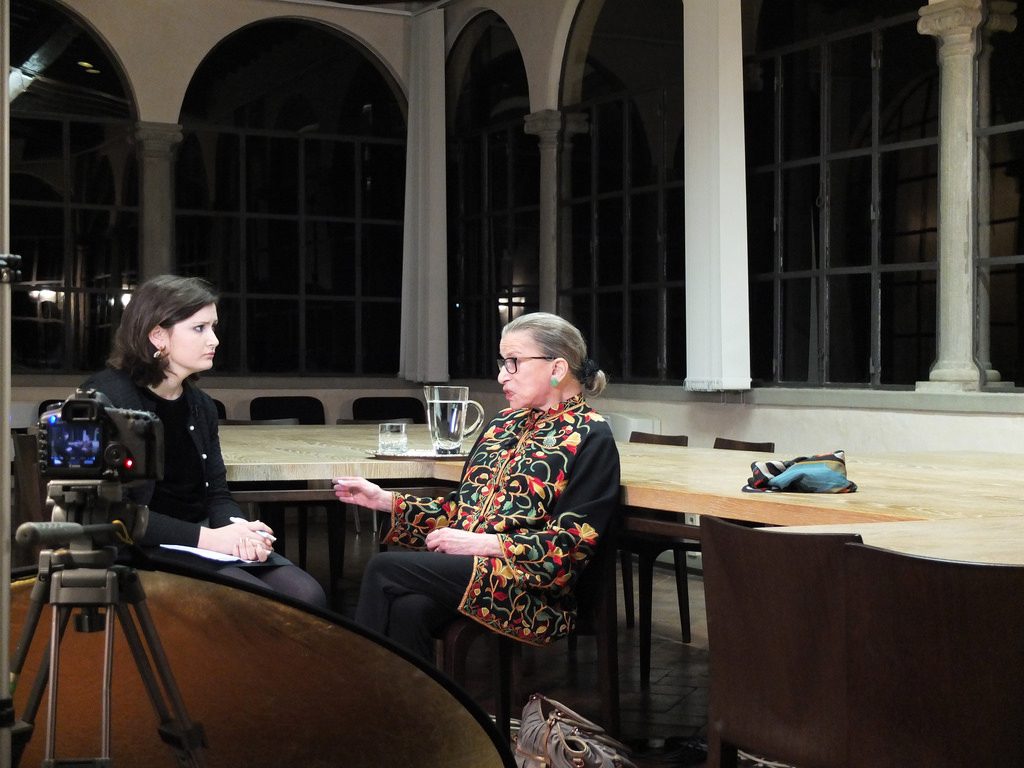Review: ‘RBG’ Takes a Heavy Focus on Gender Discrimination
The CNN documentary film about Supreme Court Justice Ruth Bader Ginsberg, “RBG” explores the making of a legal icon and those who supported her along the way.
Combining well-placed audio excerpts from Justice Ginsberg’s speeches with dramatic graphics, producers Betsy West and Julie Cohen have created a film which is visually stunning and engages an audience more artfully than other documentaries. The film covers significant ground in Justice Ginsberg’s life, including interviews with her childhood friends, colleagues, and adult children and grandchildren. RBG herself appears throughout the film, making notable commentary on the various turning points in her life.
Justice Ginsberg is most well-known for her groundbreaking fight against gender discrimination. While her legal battle did not begin until the women’s liberation movement in the 1970’s, RBG endured a personal battle with her male colleagues to fight for her right to practice law. One of nine female students in her Harvard Law class of over 500, Justice Ginsberg recounts in the film how she overcame the inevitable bigotry. Along with perseverance and a strong support group, RBG notes that it was patience which got her to where she is today.
Justice Ginsberg is the second female Supreme Court justice, after Justice Sandra Day O’Connor. She is the first Jewish female justice, following in the footsteps of her Jewish male counterparts, including Justice Louis Brandeis and Justice Benjamin Cardozo. While RBG discusses her challenges with gender discrimination on screen, there is no mention of the antisemitism she suffered as well. Not quoted in the film, Justice Ginsberg spoke before the American Jewish Committee after her appointment to the Supreme Court, saying, “I am a judge born, raised, and proud of being a Jew. The demand for justice runs through the entirety of the Jewish tradition. I hope, in my years on the bench of the Supreme Court of the United States, I will have the strength and the courage to remain constant in the service of that demand.”
Along these lines, the film also fails to mention a monumental case she heard while on the D.C. Circuit Court of Appeals regarding the right of a Jewish U.S. Air Force captain to wear a yarmulke (religious head covering) during his service. Goldman v. Secretary of Defense (1986) ultimately resulted in a Supreme Court ruling that free exercise of religion is applied differently in the military, thus denying the right to wear a yarmulke during service. Justice Ginsberg, however, defended this right in her dissenting opinion when the case passed through the D.C. Court in 1984.
Considering any omission of other events in her life, “RBG” revolves around Justice Ginsberg’s triumph over gender discrimination above all else. The film captures the spirit of the “great dissenter,” a truly brilliant woman who remains humble through her fame and power. It is a must-see, especially for young women, who will likely be inspired by Justice Ginsberg’s work.
“RBG” is playing in select theaters.




